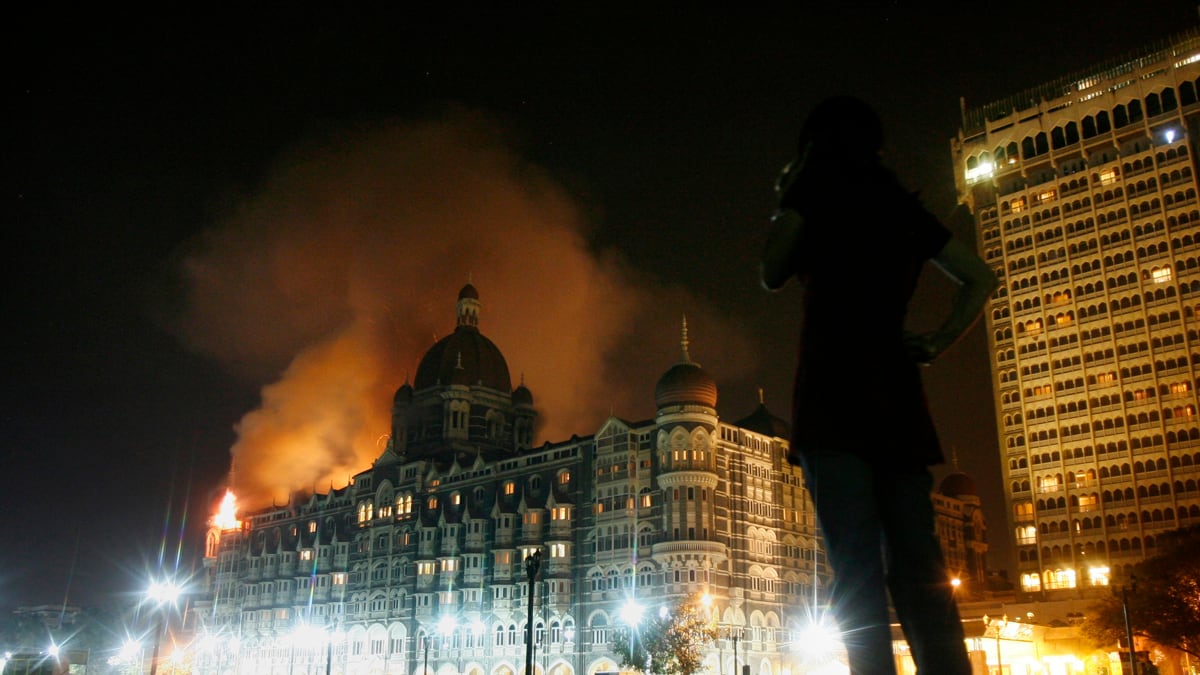By Sebastian Rotella, ProPublica
The terrorism trial of Tahawwur Rana, a minor accomplice whose trial ended Thursday in a guilty verdict on two of three counts, offered an extraordinary look into the underworld of terrorism and espionage in South Asia and had repercussions much closer to home.
The five days of testimony of confessed American terrorist and Pakistani spy David Coleman Headley were unprecedented in a U.S. courtroom. Headley delivered explosive revelations about how officers in Pakistan's Inter-Services Intelligence Directorate (ISI) funded, supported and directed the 2008 Mumbai attacks along with the Lashkar-i-Taiba militant group.

Because of his mix of front-line experience and high-level contacts, Headley's testimony was like a seminar in how terrorists communicate in code, do surveillance on targets and assemble plots while spies oversee the operations from the shadows like puppeteers. The case also showed how a growing number of serving and former Pakistani military officers have put their lethal talents at the service of Lashkar, al Qaeda and other groups. It revealed the impunity with which ISI officers and terrorists alike operate in Pakistan even when they target Americans and other Westerners. (See our readers' guide to the trial.)
The evidence combined with the indictment of Headley's ISI handler in the murders of six American victims of the Mumbai attacks has worsened the already troubled U.S. Pakistani-relationship. "The trial has been yet another bump in the road for U.S.-Pakistan relations," said Stephen Tankel, author of a forthcoming book titled Storming the World Stage: the Story of Lashkar-e-Taiba.
At the same time, the trial left enduring mysteries.
It did not answer questions about whether Sajid Mir, a Lashkar mastermind caught on tape directing the slaughter in Mumbai by phone, was once a Pakistani military officer. It did not explore the extent to which ISI chiefs beyond Headley's handler, known only as Major Iqbal, were aware of the Mumbai plot, which ultimately killed 166 people. Headley testified that he believed top ISI leadership was not aware, but he also said he thought Iqbal's commanding officer and his unit of the spy agency knew about the operation.
Finally, prosecutors managed to skirt two delicate and interconnected issues that the U.S. government refuses to discuss: Headley's role as a U.S. informant and the failure of the FBI to stop his terrorist activity despite at least six warnings during seven years. Headley revealed that he was simultaneously an extremist and an informant for the Drug Enforcement Administration for at least two years, and that he gathered counterterror intelligence as well as doing anti-drug work.
Headley testified that he stopped working for the DEA in September 2002, but that did not change contradictions and gaps in the U.S. government's official version. The DEA has stated that he was deactivated in early 2002, while other agencies have said he remained an informant until as late as 2005.
The lack of clarity reinforces suspicions that the U.S. government knew more about Headley than it has revealed and that his role as an informant shielded him from more aggressive scrutiny in the years before his arrest in October 2009.
"I don't feel we got the whole story about Headley as an informant from the Americans," said a European counterterror official involved in the investigation. "I believe he was a drug informant and also some other kind of informant."
The jury did not get the whole story either. Headley had already pleaded guilty to doing reconnaissance in Mumbai and for a plot in Denmark. The official focus of the trial was the narrower issue of charges of material support of terrorism against Rana, who owns an immigration consulting firm in Chicago. He was accused of supporting Headley's reconnaissance for the Mumbai and Denmark attacks and of overall support for Lashkar. Prosecutors charged that Rana let Headley open an office of the firm in Mumbai and use the business as cover for his surveillance in India and Denmark.
The verdict suggested a common-sense analysis by the jury. Headley testified that the Mumbai plot was a joint operation in which he was directed by Major Iqbal of the ISI and the Lashkar handler named Mir. The defense established that Rana communicated with Major Iqbal, but not any Lashkar masterminds. Rana's lawyers argued that Headley, Rana's boyhood friend, was a skilled manipulator who convinced Rana that he was doing intelligence for the ISI against India, Pakistan's arch-enemy, and kept him in the dark about the Mumbai plot.
The acquittal on the charge of supporting the Mumbai plot indicates that the jury accepted that argument. But they apparently rejected the idea that Rana remained a dupe once the carnage in India had happened. Headley soon enlisted Rana to assist his reconnaissance on a newspaper in Denmark that has become an internationally known target of terrorists after publishing caricatures of the Prophet Mohammad in 2005. Because Rana was a devout Muslim, it seems hard to believe he did not suspect anything at that point.
Rana's conviction is a small victory. Washington has been pressing Pakistan for more than a year to arrest Major Iqbal as well as Mir and a half-a-dozen other Lashkar chiefs who have been implicated as masterminds. Despite abundant evidence and the U.S. federal indictment, the Pakistani government has not pursued those fugitives. They are not in hiding and continue to be involved in terrorist plotting, U.S. investigators say.
Lashkar is simply too powerful and too close to the Pakistani security forces, according to Western and Indian counterterror officials. Pakistani officials fear that arresting major figures in Lashkar, which has not attacked the Pakistani state, could result in violent backlash and further instability.
"They think they have to leave these Lashkar cadres free to control the organization," an Indian anti-terror official said. "They are worried that if they move against them, it could be a civil-war situation."
An award-winning foreign correspondent and investigative reporter, Sebastian worked for almost 23 years for the Los Angeles Times, covering everything from terrorism to arts to the Mexican border. He served most recently as a national security correspondent in Washington, D.C., and his previous posts include international investigative correspondent and bureau chief in Paris and Buenos Aires, with assignments in the Middle East and North Africa.






